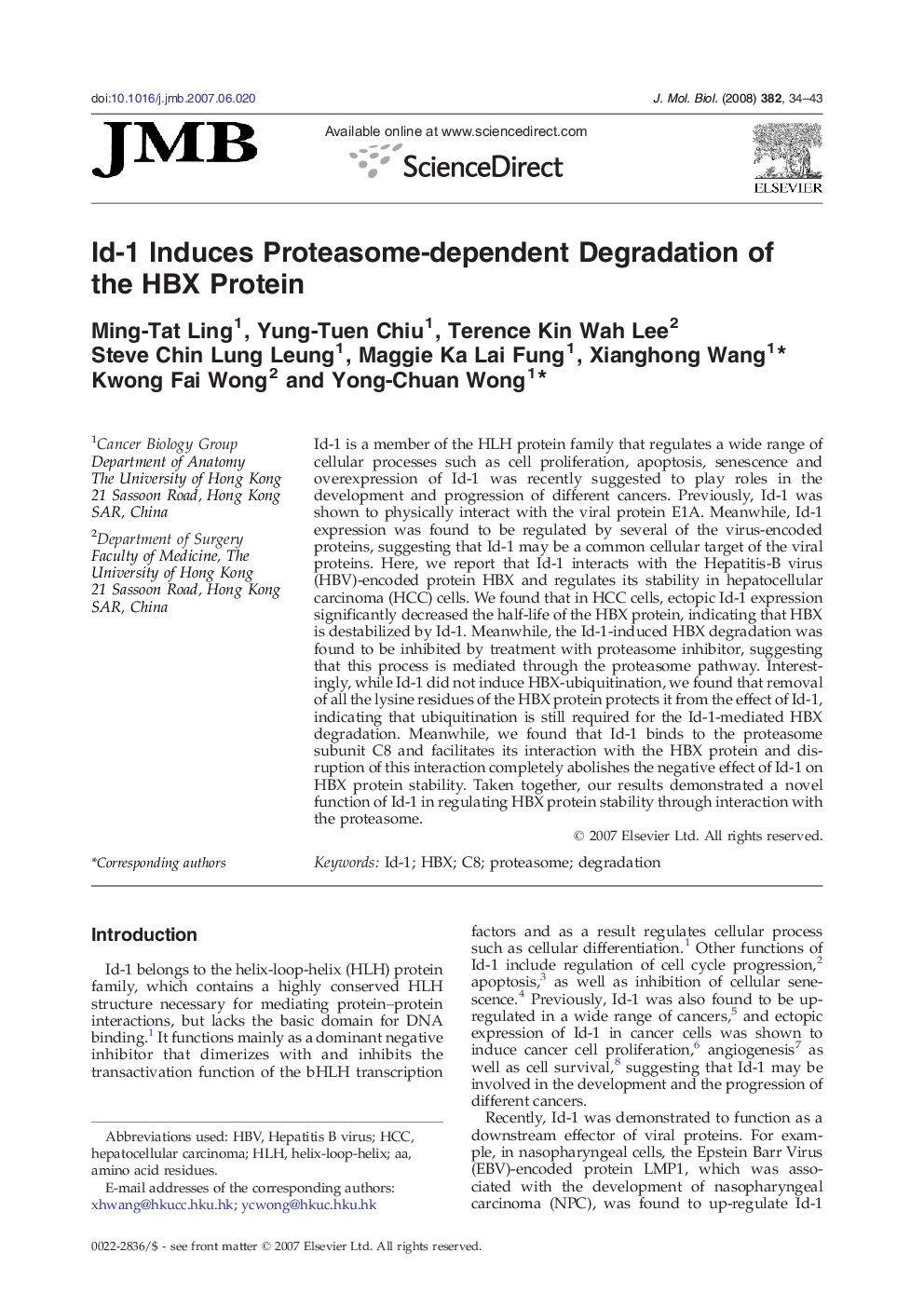| Article ID | Journal | Published Year | Pages | File Type |
|---|---|---|---|---|
| 2187228 | Journal of Molecular Biology | 2008 | 10 Pages |
Id-1 is a member of the HLH protein family that regulates a wide range of cellular processes such as cell proliferation, apoptosis, senescence and overexpression of Id-1 was recently suggested to play roles in the development and progression of different cancers. Previously, Id-1 was shown to physically interact with the viral protein E1A. Meanwhile, Id-1 expression was found to be regulated by several of the virus-encoded proteins, suggesting that Id-1 may be a common cellular target of the viral proteins. Here, we report that Id-1 interacts with the Hepatitis-B virus (HBV)-encoded protein HBX and regulates its stability in hepatocellular carcinoma (HCC) cells. We found that in HCC cells, ectopic Id-1 expression significantly decreased the half-life of the HBX protein, indicating that HBX is destabilized by Id-1. Meanwhile, the Id-1-induced HBX degradation was found to be inhibited by treatment with proteasome inhibitor, suggesting that this process is mediated through the proteasome pathway. Interestingly, while Id-1 did not induce HBX-ubiquitination, we found that removal of all the lysine residues of the HBX protein protects it from the effect of Id-1, indicating that ubiquitination is still required for the Id-1-mediated HBX degradation. Meanwhile, we found that Id-1 binds to the proteasome subunit C8 and facilitates its interaction with the HBX protein and disruption of this interaction completely abolishes the negative effect of Id-1 on HBX protein stability. Taken together, our results demonstrated a novel function of Id-1 in regulating HBX protein stability through interaction with the proteasome.
